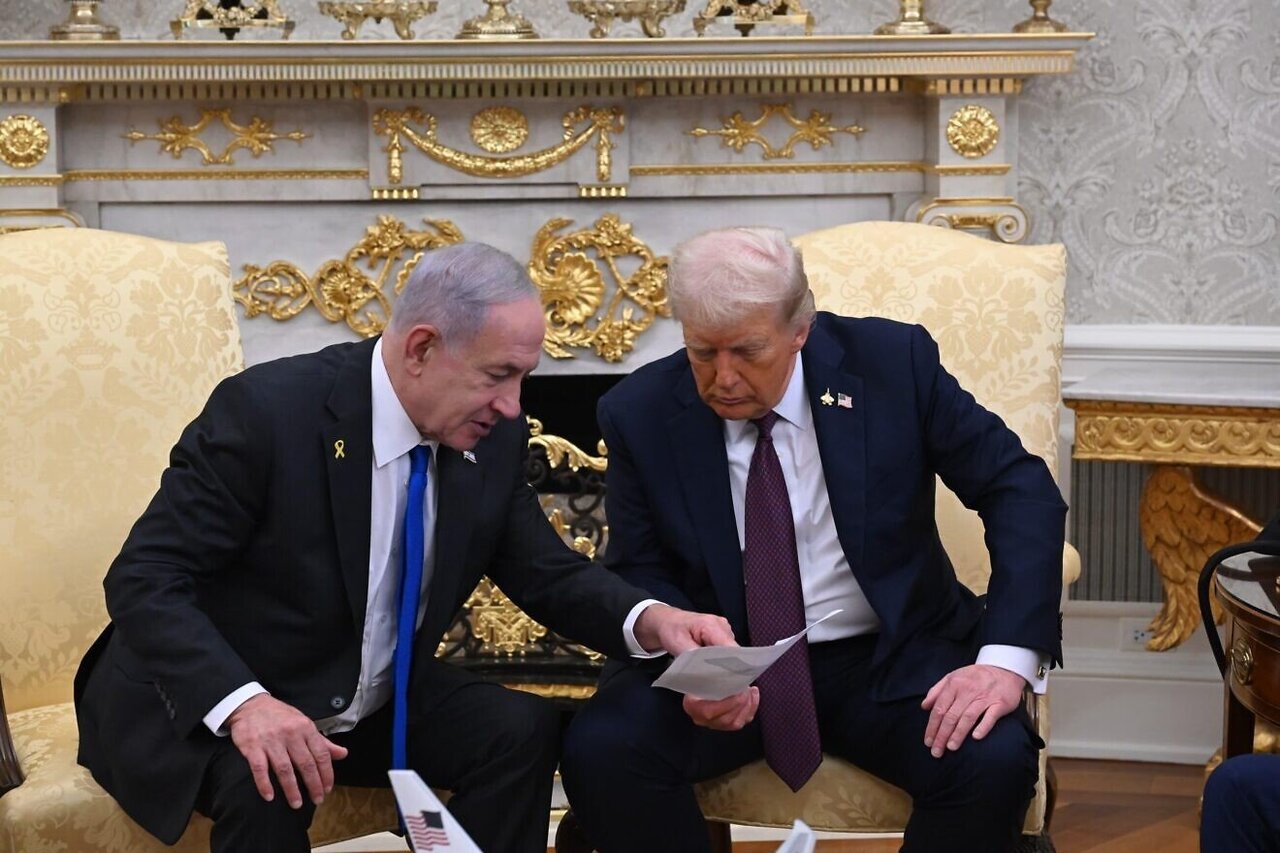West Bank annexation theater: How Israel’s Knesset plays good cop, bad cop

TEHRAN – The recent votes in Israel’s Knesset on bills to annex parts of the West Bank have drawn worldwide attention. At first glance, they appear to be a major political confrontation. Far-right politicians like Bezalel Smotrich and Itamar Ben-Gvir, who live in illegal settlements, pushed strongly for the bills. Avi Maoz of the Noam party declared that “the time has come to apply sovereignty,” invoking biblical claims to the Palestinian land.
The U.S. reacted immediately. Vice President JD Vance called the vote an “insult,” while Secretary of State Marco Rubio warned it could threaten the fragile Gaza ceasefire. President Donald Trump previously told Israel it could lose U.S. support if it moved forward with annexation.
On the surface, Benjamin Netanyahu and Trump appear to oppose annexation. Netanyahu halted the bills, describing them as a “political provocation.”
Yet the reality on the ground tells a different story. Settlements continue to expand aggressively across the West Bank. In the sensitive E1 area near Jerusalem (al-Quds), Israel recently approved thousands of new homes, projects that threaten to bisect the West Bank and make a future Palestinian state virtually impossible. Settler violence has also risen sharply. Since the Gaza war began in October 2023, over 1,000 Palestinians have been killed by Israeli forces or settlers in the West Bank, and thousands more displaced.
This is a textbook “good cop, bad cop” scenario. Netanyahu and Trump act as the good cops, presenting themselves as restraining annexation to appease international opinion and Arab states. The far-right politicians act as the bad cops, pushing annexation and creating pressure that forces the government to show restraint. Meanwhile, Israel consolidates territory and expands settlements while maintaining the appearance of following international norms.
Trump’s goals are clear. His Gaza ceasefire plan, which began on October 10, has been repeatedly violated, yet he wants to claim success in stabilizing the region. He also seeks to advance the Abraham Accords by bringing in more Arab countries. Annexation threatens both efforts by inflaming tensions and alienating potential partners. Netanyahu, meanwhile, needs to manage his far-right coalition. Publicly halting the bills satisfies U.S. and international expectations, while settlement expansion continues quietly.
The consequences for Palestinians are stark. The two-state solution continues to erode. Territories are fragmented, and Palestinian rights increasingly ignored. While international media focuses on U.S. opposition to annexation, Israel’s de facto annexation proceeds through settlement expansion and control of key areas.
The Gaza situation adds another layer. Trump and other U.S. officials are pushing reconstruction and stabilization plans. Civilians displaced during the war face immense challenges. According to the UN, over 90% of buildings in Gaza were damaged or destroyed. More than 15,000 patients still await medical treatment outside Gaza, and aid delivery remains slow. Annexation threatens to undermine U.S. narratives of progress in the region.
Ultimately, the Knesset votes reveal a coordinated strategy. The far-right agitates for annexation, creating a spectacle. Netanyahu and Trump step in as good cops, claiming to block it while, in practice, Israel consolidates control over the West Bank. Annexation is advancing, but the public narrative misleads the world about who is driving it.
For Palestinians, the stakes are high. Their land continues to shrink, violence persists, and the international community is misled by appearances. Netanyahu, Trump, and the far-right are all pursuing the same ultimate goal, each playing a part in a carefully staged political theater.
This is not just politics. It is a strategic performance designed to maintain U.S. support, manage domestic coalitions, and keep the world focused on the wrong actors. The annexation of the West Bank is happening, slowly and deliberately, while much of the global debate remains largely theatrical.
Leave a Comment